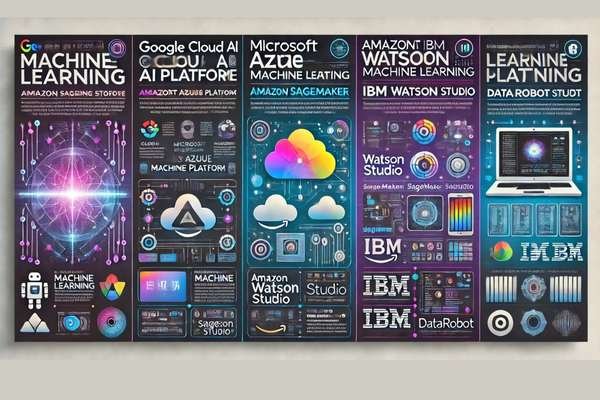
Using AI to Enhance Your Marketing Automation Workflows
September 16, 2024
How to Increase Customer Engagement with AI Chatbots
September 20, 2024The Role of AI in Personalizing Customer Experiences
In today’s fast-paced digital landscape, businesses are continuously looking for innovative ways to engage their customers and provide personalized experiences. One of the most revolutionary tools in this endeavor is Artificial Intelligence (AI). By leveraging AI, companies can offer highly tailored content, products, and services, transforming the customer experience into a more individualized journey.
Table of Contents
1. What is Personalization Driven by AI?
The simulation of human intelligence in machines is known as artificial intelligence, or AI. It enables these systems to handle data, draw conclusions from it, and decide what to do based on trends. AI can be used to create individualized marketing campaigns, product suggestions, and customer support services when it comes to consumer experiences.
1.1 AI for Gathering and Analyzing Data
Large-scale consumer data collection, processing, and analysis are key components of AI-driven personalization. This covers everything, from social media interactions to internet browsing behaviors. After that, AI systems are able to spot trends and forecast the needs, preferences, and actions of their clients.
For example, e-commerce sites employ AI to monitor past purchases and browsing patterns, which enables them to suggest goods and services that are tailored to each individual user’s preferences. Customers are therefore more likely to interact with the brand, which raises conversion rates.
1.2 Machine Learning and Predictive Analytics
Utilizing past data and machine learning algorithms, predictive analytics makes predictions about future consumer behavior. This enables businesses to anticipate their customers’ next actions and interact with them proactively.
Consider Netflix as an illustration. Their AI engine makes predictions about what series or movies you would want to watch next based on an analysis of your viewing patterns and history. Personalization like this increases consumer loyalty and keeps consumers interested.
2. AI Uses for Customer Engagement and Marketing
2.1 Virtual assistants and chatbots
AI-driven chatbots and virtual assistants are quickly replacing human customer service representatives as common tools. By providing quick answers to consumer questions, these technologies enhance user experience and shorten response times. These AI-powered assistants can further personalize client interactions by responding with ever-more-relevant and accurate responses over time thanks to machine learning.
2.1.1 Instantaneous Customer Assistance
AI chatbots have been implemented by companies like Sephora and H&M to assist customers with their purchase journeys and to answer questions. The benefit? quicker decisions, round-the-clock support, and a more customized experience based on previous exchanges with clients.
2.2 Customized Emails and Focused Promotions
One of the most effective methods for individualized communication is email marketing. By evaluating consumer data and sending tailored messages based on behavior, location, past purchases, and even anticipated future behaviors, artificial intelligence (AI) improves this.
2.2.1 Customization and Dividend
With the use of AI techniques, audiences may be divided into tiny pieces so that each client is served information that specifically speaks to their wants and interests. Better click-through rates, increased engagement, and increased customer satisfaction result from this.
3. AI for Content Generation and Suggestions
3.1 Suggestions for Tailored Content
AI is capable of anticipating consumer preferences not just for things but also for content. YouTube and Spotify are two of the best platforms to illustrate how AI affects content suggestion. These services recommend films, songs, or podcasts based on user involvement with past content, catered to specific interests.
3.1.1 Better User Experience
Users are more likely to stick with a platform if they believe it “knows” their preferences. Content makers find AI-driven personalization to be an invaluable tool as it improves customer pleasure and retention.
3.2 Customizing Dynamic Content on Websites
Websites are dynamic, dynamic things these days. AI enables dynamic, real-time website content modifications based on specific users. On a travel website, for instance, a user in New York would receive tailored suggestions for hotels and flights based on past searches, but a user in London might see completely different material.
3.2.1 E-commerce Personalization
Dynamic personalization is used by Shopify and Amazon to show relevant goods, categories, and deals. Presenting customers with products they are most likely to buy increases sales while also enhancing the shopping experience.
4. Ethical Aspects of AI-Powered Customization
4.1 Security of Data and Privacy
While AI can greatly improve customer experiences by personalizing them, it also brings up ethical issues, most notably those related to data protection. Large-scale personal data collection can be intrusive, so businesses need to make sure they are open about how they utilize this information.
4.1.1 Adherence to the CCPA and GDPR
Policies such as the California Consumer Privacy Act (CCPA) and the General Data Protection Regulation (GDPR) mandate that businesses get authorization before collecting and utilizing consumer data. To stay out of legal hot water and gain the trust of clients, AI developers and marketers need to make sure that their operations adhere to these standards.
4.2 AI Algorithms: Preventing Bias
AI systems acquire knowledge from past data, which could be biased. These prejudices may lead to the unfair treatment of particular client groups if they are not addressed. Businesses need to periodically audit their AI algorithms to make sure they are free of discriminatory biases and to provide truly fair and tailored experiences.
4.2.1 Applying Equitable AI Methodologies
Businesses like Google and IBM are proactively addressing AI ethics through the creation of frameworks and tools that support accountability, transparency, and justice in AI-driven personalization.
The Role of AI in Personalizing Customer Experiences Comparaison
| Tool/Platform | Key Features | Best For | Pricing | Website |
|---|---|---|---|---|
| Google AI | Predictive analytics, dynamic content, real-time personalization | Large enterprises, data-driven campaigns | Custom pricing | Visit Google AI |
| IBM Watson | Customer behavior analysis, chatbot integration, tailored recommendations | Healthcare, retail, and financial services | Free and premium tiers | Visit IBM Watson |
| Adobe Sensei | Content personalization, advanced analytics, AI-driven design tools | Creative professionals, marketing teams | Part of Adobe Creative Cloud | Visit Adobe Sensei |
| Dynamic Yield | Real-time customer segmentation, product recommendations, A/B testing | E-commerce and retail businesses | Custom pricing | Visit Dynamic Yield |
| HubSpot | AI-powered email personalization, lead segmentation, marketing automation | Small to medium businesses | Free and premium plans | Visit HubSpot |
Frequently Asked Questions (FAQs)
1. How does AI improve customer personalization?
AI enhances customer personalization by analyzing vast amounts of data and predicting customer preferences, behaviors, and needs. This allows businesses to offer more relevant products, services, and content to their customers, improving engagement and satisfaction.
2. Is AI personalization suitable for small businesses?
Yes, AI-driven personalization can benefit small businesses by helping them tailor their marketing strategies, customer service, and product offerings to individual customers. Affordable AI tools are available that cater to businesses of all sizes.
3. How can companies ensure data privacy when using AI for personalization?
Companies must be transparent about how they collect and use customer data. Complying with regulations like GDPR and CCPA, obtaining explicit consent, and implementing strong data security measures are essential to ensuring customer privacy.
4. What are the potential challenges of using AI in personalization?
Challenges include ensuring data privacy, avoiding algorithmic bias, and ensuring that AI recommendations do not feel too invasive or creepy to customers. Proper data management and regular audits can mitigate these challenges.
Conclusion
The role of AI in personalizing customer experiences is undeniably transformative. From tailored product recommendations to dynamic content and predictive analytics, AI is changing the way businesses interact with customers. However, to fully reap the benefits of AI-driven personalization, companies must also address ethical concerns such as data privacy and algorithmic bias. When implemented correctly, AI can significantly enhance customer satisfaction, boost engagement, and drive sales.








